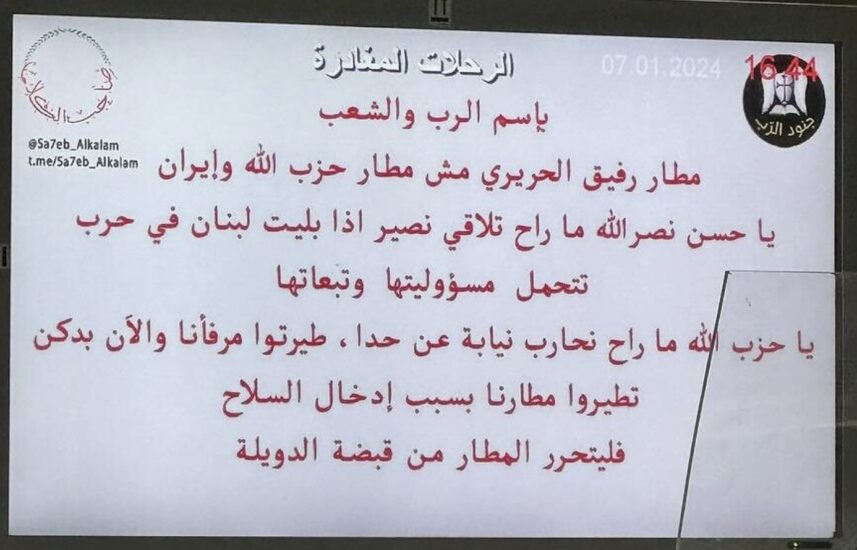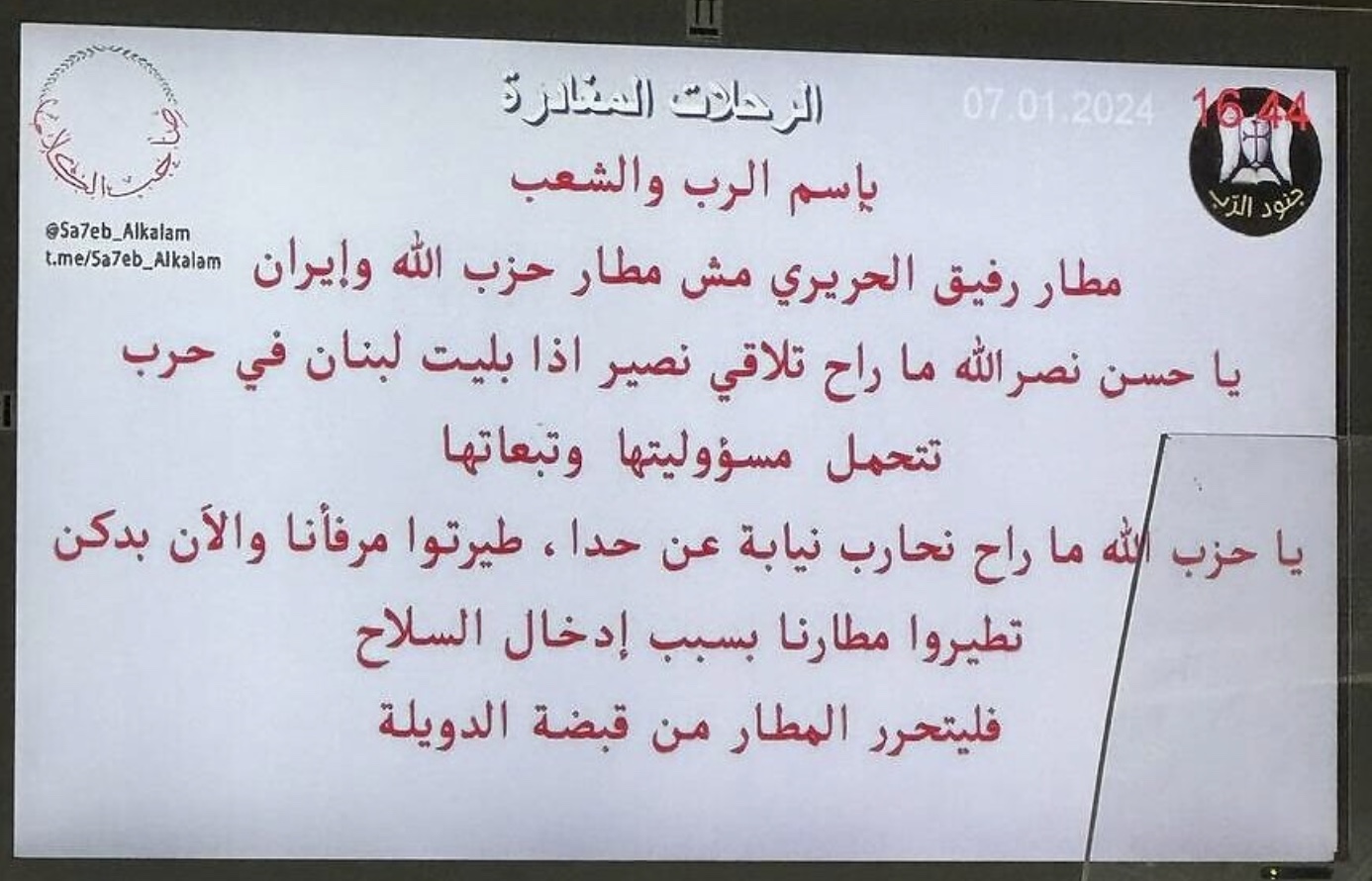LISTEN “Beirut airport screens hacked with messages against Hezbollah” on Spreaker.
Editorial
Information display screens at Beirut International Airport were hacked by domestic anti-Hezbollah hacker groups yesterday, as clashes between the Iranian-backed and financed Lebanese group and the Israeli army continue to intensify along the border .
The information on the flight departures and arrivals screens has been replaced by a message accusing the Hezbollah group of putting Lebanon at risk of all-out war with Israel.
The screens showed a message with the logos of an extremist Christian group called Soldiers of God, which has attracted attention in the past year for its campaigns against the LGBTQ+ community in Lebanon, and a little-known group called He Who Spoke.

In a video statement, the Christian group denied involvement, while the other group shared photos of the screenshots on their social channels. "Hassan Nasrallah, you will no longer have supporters if you curse Lebanon with a war for which you will bear the responsibility and the consequences", the message read. There are also many references to the internal accusations made against Hezbollah for having used the civilian airport for the smuggling of weapons and ammunition with Iran.
The message stated, in fact, that the airport was not "the airport of Hezbollah and Iran", as reported by The Times of Israel. Lebanon's National News Agency stated that “the cyber attack on the departure and arrival screens at the airport had also disrupted the BHS baggage inspection system“. Passengers, in disbelief, gathered around the screens, taking photos and sharing them on social media.
After the Hamas attack on October 7, Hezbollah began hitting military bases and Israeli positions near the country's northern border. Israel, in response, hit Hezbollah positions, warning that it wants to push Iran's affiliate away from its border. The almost daily clashes have intensified significantly in the last week, after an alleged Israeli attack in a southern Beirut suburb that killed Hamas leader Saleh al-Arouri.
United States Secretary of State anthony blinken and the United States special envoy Amos Hochstein have been sent to the region to try to calm tensions as the war against Hamas threatens to spread regionally. “This is a time of deep tension for the region. This is a conflict that could easily metastasize, causing even more insecurity and suffering“Blinken told reporters last night from Qatar.
Last Saturday the head of Hezbollah, Hassan Nasrallah, vowed that the group would avenge the country for Tuesday's attack on Arouri, rejecting criticism that Hezbollah was seeking an all-out war with Israel. Of course, Nasrallah said that if Israel were to wage a full-scale war, Hezbollah is ready for an “unlimited” war.
Hezbollah, in response to Arouri's killing, fired 62 rockets on Saturday morning towards an Israeli air surveillance base on Mount Meron. European Union foreign policy chief Josep Borrell met with a Hezbollah political official in Beirut on Saturday, as part of a move to prevent Lebanon from being dragged into the war between Israel and Hamas, a spokeswoman said. EU source to TOI.
In nearly three months of low-intensity war close to the borders, Hezbollah has reported suffering 153 casualties among its members, killed by Israel. Mainly in Lebanon but some also in Syria. In Lebanon, 19 other members of other terrorist groups, a Lebanese soldier and at least 19 civilians, including three journalists, were killed. In northern Israel, nine soldiers and at least four civilians were killed, according to Israeli authorities. Other attacks are also recorded in Syria, while the efforts of international and regional diplomacy are intensifying to avoid an escalation with highly unpredictable consequences.
Subscribe to our newsletter!
